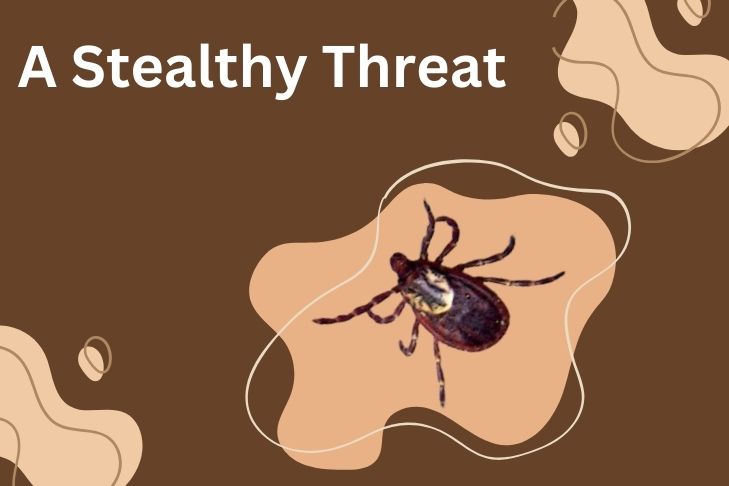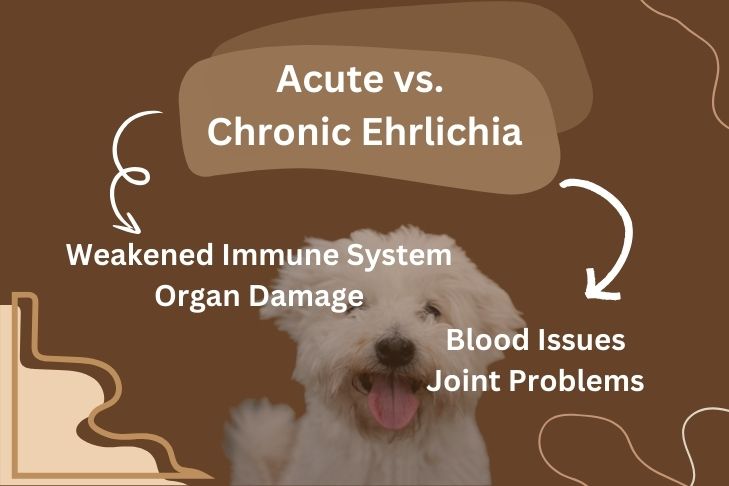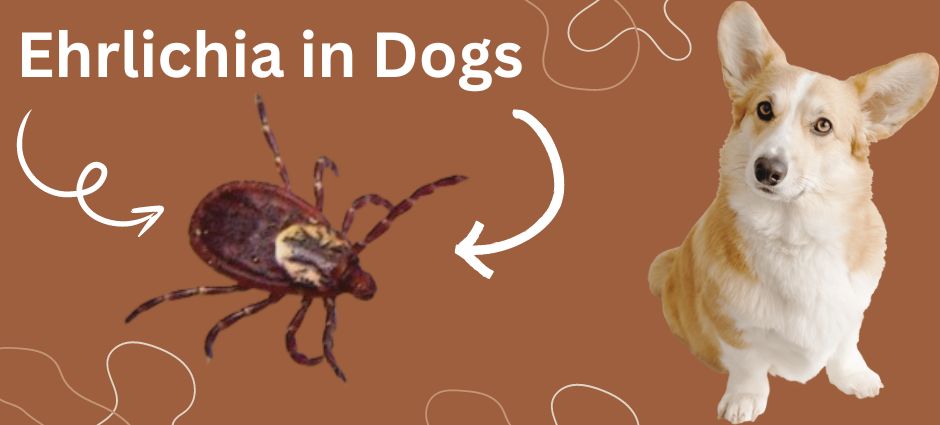Our furry companions are not just pets; they’re our family members who are very cherished. We shower them with love, worry about every sniffle, and want nothing more than for them to live long, healthy lives. But sometimes, despite our best efforts, illness can strike.
One such illness, Ehrlichia, can leave us feeling helpless, especially when considering the long-term effects of Ehrlichia in dogs.
Ehrlichia: A Stealthy Threat

Ehrlichia is a bacterial disease that is mostly transferred through brown dog ticks. These tiny little pests usually carry bacteria, which enters your doggo’s bloodstream when the ticks feed. While some dogs might fight off the infection with minimal symptoms, others can develop a more serious illness.
The scary part? The initial signs of Ehrlichia can be quite vague, unlike the long-term effects of Ehrlichia in dogs – lethargy, loss of appetite, fever. It might be easy to dismiss them as a passing bug.
The Battle Within: Acute vs. Chronic Ehrlichia

If left untreated, Ehrlichia can progress from an acute stage (lasting weeks to months) to a more concerning chronic stage.
This is where the long-term effects of Ehrlichia in dogs come into play in your chunky dog’s life. Here’s what you need to know:
- Weakened Immune System: Ehrlichia disrupts your dog’s immune system, making them more susceptible to other infections. It’s like a mini criminal leaving your pup vulnerable to attack.
- Blood Issues: The bacteria can wreak havoc on your dog’s blood cells, leading to conditions like anemia (lack of red blood cells) and thrombocytopenia (low platelet count). This can cause problems like pale gums, weakness, and even bleeding. Imagine your dog feeling constantly tired and weak; it’s heartbreaking.
- Organ Damage: In severe cases, chronic Ehrlichia can damage vital organs like the spleen, liver, and kidneys. This can really affect your big furry dog’s overall health.
- Joint Problems: Limping, stiffness, and pain—these can be long-term consequences of Ehrlichia. The bacteria can inflame joints, making even everyday activities uncomfortable for your furry friend.
- Neurological Issues: In some cases, Ehrlichia can affect the nervous system, leading to problems like seizures, tremors, and even behavioral changes. Imagine the confusion and disorientation your dog might experience—it’s a scenario no pet parent wants to see.
A Ray of Hope: Early Detection is better than long term effects of Ehrlichia in dogs

The good news, however, is that Ehrlichia can be treated, especially when you catch it early and basically nip it in the bud. Regular vet checkups, including blood tests, are crucial for early detection.
If your dog is displaying any warning signs, make sure you book his vet appointment right away. The sooner Ehrlichia is diagnosed, the better the chance of preventing long-term complications.
Protecting Our Pups: Prevention is Our Weapon

While there’s no foolproof way to prevent Ehrlichia completely, there are steps you can take to minimize the risk:
- Tick Control: This is absolutely essential. Use a veterinarian-approved tick preventative year-round, even in colder months. Make sure that you regularly check your furry doggo for ticks after walk sessions.
- Limit Exposure: Avoid tick-infested areas, especially during peak tick seasons.
- Maintain a Healthy Diet: A nutritious diet provides your dog with the immune system support they need to fight off potential infections.
Ehrlichia can be a complex disease, and navigating its treatment and long-term management requires a strong partnership with your veterinarian. They will be your dog’s champion, guiding you through every step of the process.
Open communication is key—share any concerns you have, ask questions without feeling embarrassed or overthinking it, and then follow their recommendations closely.
Early detection and consistent care are way more important than you think for minimizing the impact of long-term effects of Ehrlichia in dogs. Remember, your veterinarian is there to support you both, and together, you can create the best possible outcome for your beloved dog.
Living with Long-Term effects of Ehrlichia in Dogs
If your dog has already been diagnosed with chronic Ehrlichia, there’s still hope. While some damage might be irreversible, proper veterinary care and management can significantly improve their quality of life.
This might include medications, dietary changes, pain management strategies, and even physical therapy to help with joint issues.
Remember, with love, dedication, and a commitment to managing their condition, you can still create a happy and comfortable life for your furry friend. They may require some extra care, but the love and loyalty they bring to our lives are more than worth it.
Beyond the Blog: A Message from the Heart
As dog lovers it is one of our primary duties to take care of them. By understanding Long-Term Effects of Ehrlichia and taking preventive measures, we can safeguard our pups from this potentially debilitating disease!




